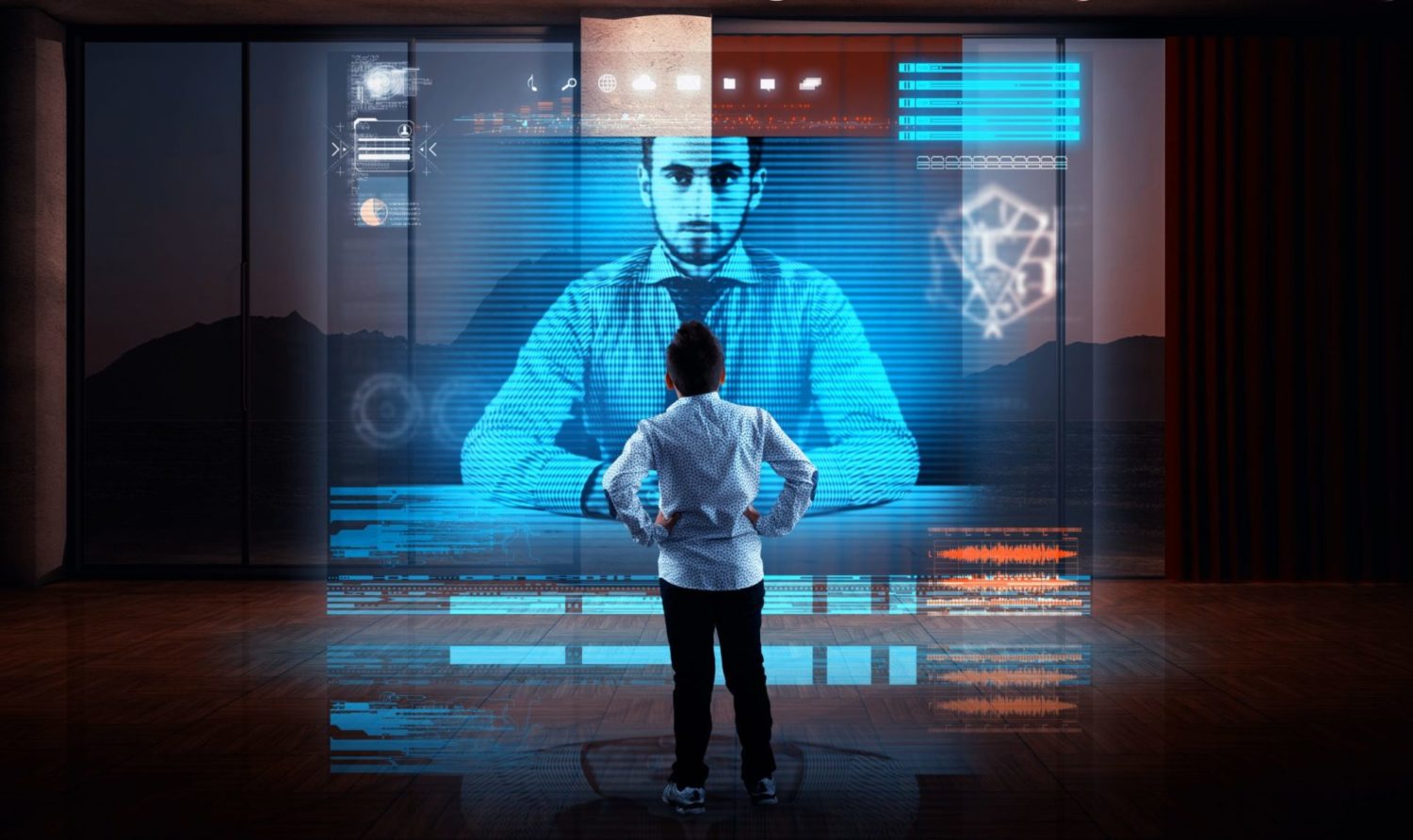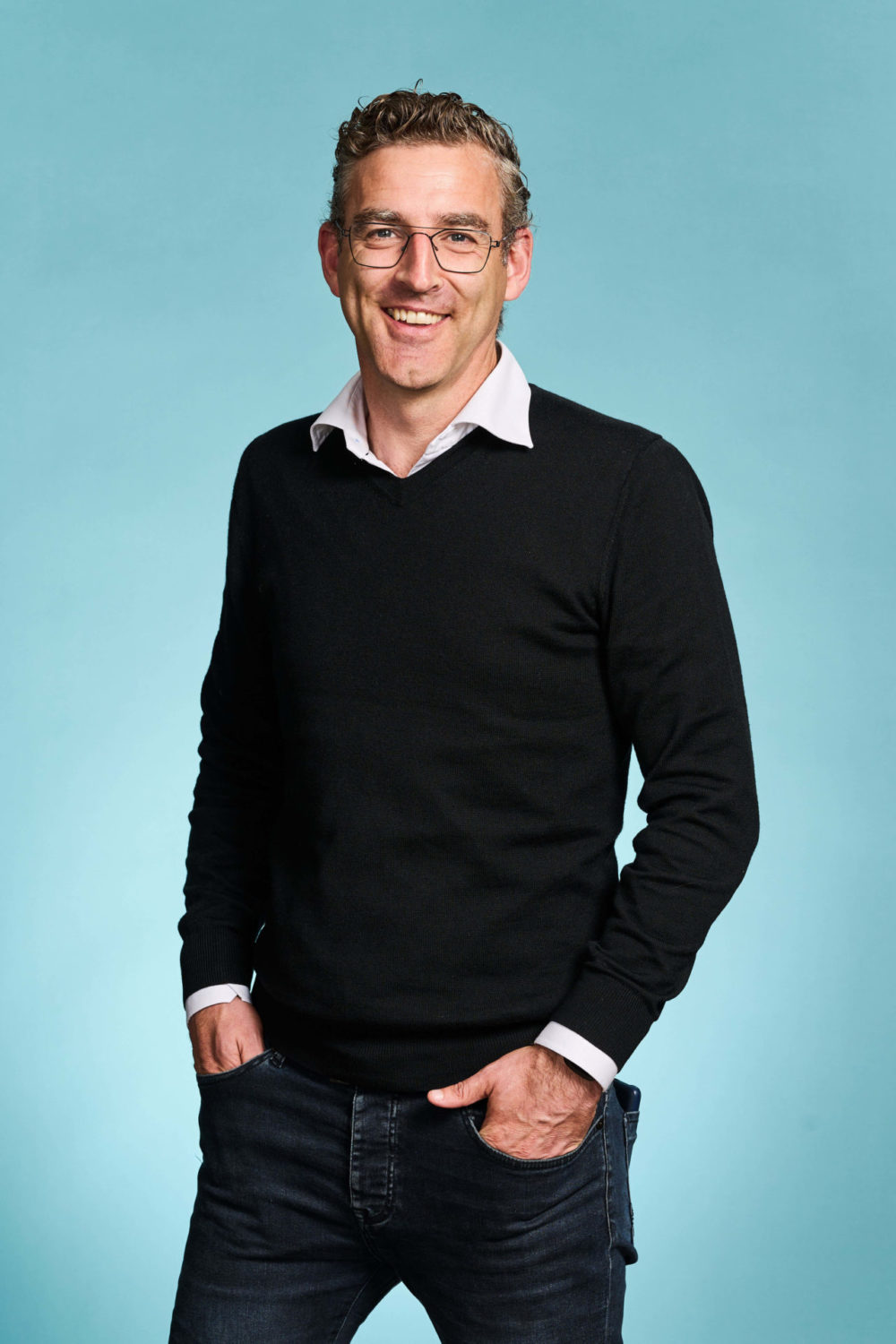
Text from a whatsapp conversation:
[23:19, 20-05-2021] Reporter: Can you send out avatar for yourself soon?
[23:20, 20-05-2021] Jarno Duursma: This is the avatar. Jarno himself is sleeping soundly.
That "Jarno" is asleep is a joke by trend watcher Jarno Duursma. But the answer does give a direction we are going. He can work from home and have two avatars (digital copies of himself) deliver his lectures via Teams, for example.
Baby boomers' role played out in 2040
Business in 2040 will be different than in 2021. But in which direction we are going is uncertain. We therefore put some visions of the future side by side. Duursma's alongside those of Nick Stevens (co-founder of the former The Big Building in Groningen, involved in numerous new developments) and Merijn de Boer (director of Indietopia, breeding ground for game companies). And we feature a young music entrepreneur, 17-year-old Julius Kasa de Boer, looking ahead.
One thing is certain: visions of 2040 vary quite a bit. Take Nick Stevens. He looks at the composition of the population; the role of the baby boomers will be over by then, and at the very opposite end of the population pyramid are the generations after the millennials: Generation Z and Generation Alpha. ''Those last two generations have a totally different worldview,'' he suspects. ''Their heroes are people like Greta Thunberg. And they feel that all those previous generations have fucked it up for them.''
Generation Z and Alpha don't work for 'bad' company
These are stories we don't know yet, but they are going to happen. According to Stevens at lightning speed. ''Our generation was at the mercy of the baby boomers,'' is his analysis. ''Those grew up in the postwar period. Construction plus growth, growth, growth were the dominant factors.''
A good life requires money then became the mantra. Preferably easily earned. Millennials already look at things differently, Stevens argues, but subsequent generations - Generation Z and Alpha - are "hands on. Stevens: , "They have no choice, because they don't come in a bed of plenty like other generations. They have less money, less purchasing power. They look mostly at costs and are more activist. They would rather have less salary than work for a bad company.'' And he stresses: ''This is going to happen.''
'The fairest rather than the cheapest'
That mindset will have an effect on the economy. Profitability and growth as goals will give way to more societal and environmental vistas. Stevens: ,,More companies are going to do good things for the world. Because the youthful consumer is saying: do me the fairest instead of the cheapest.''
And there's another factor, because, according to Stevens, we are moving to a remote world, a world in which much is controlled remotely. Work, too. The corona period has already taught us that we no longer need to go to the office and that from home - remotely - we can satisfy our employers just as easily. ''Commuting is private time, and do you know how it will soon feel if you spend 1.5 hours in the car every day?'' said a tantalizing Stevens. ''Everyone can get by with a laptop and going to the office three times a year is enough.''
Office becomes place for social cohesion
It doesn't end there, believes the Englishman, who in recent years has mentored major multinationals and facilitated Startup Weekends around the world. ''Tech makes a lot possible,'' his run-up sounds. ''The question is whether you want to work for the best employer within an hour's drive or the best employer in the world.'' A company that soon wants to see its people in the office is no longer going to get the best employees.''
So much for Stevens for a moment. Let's go to Jarno Duursma who is looking more at tech than entrepreneurship in 2040. But he is on the same page with Stevens when it comes to "remote. ''Office is becoming a place for social cohesion,'' he believes. And he points to artificially intelligent software, which can handle things like accounting, customer service and marketing. Without programming knowledge, it's all manageable. ''Entrepreneurship will be made easy,'' the trendwatcher believes. ''And that can help with new ideas, with innovation. Also, it can more precisely measure which efforts are most efficient.''
'It is the time when anything goes'
Duursma's expectations are partly in line with those of Stevens. He, too, sees environment and norms influencing the moral compass of younger generations. ''The question always remains how consistent that generation will be as they mature,'' Duursma does note.
Merijn de Boer calls this period "the culmination of the Fourth Industrial Revolution" because: ''Data and tech work together so much that you lose track. It is the time when everything is possible.'' In movies, actors no longer have to go to Morocco if they have to play on a planet; the background of a planet can be 'edited' right into the film, says De Boer. And digitally you can fake real people. De Boer: ''You get them in 3D, it looks very real.''
Indietopia already works with a code of conduct
With VR glasses on, you can even "walk around" Rome. ''Anything is possible,'' the director of Indietopia emphasizes, ''but of course there is the ethical question: how far do you go? A lot of data is known about everyone. It can go so far that a supermarket reports that your groceries are ready when you haven't ordered anything. But they know exactly how much toilet paper and butter you need at that moment.''
De Boer predicts a rock-hard battle between ethical parties and data collectors and sellers. ''At Indietopia, that's why we also work with a code of conduct,'' he says. ''The bottom line is that we don't approach companies from science that we shouldn't have.''
Governments lack the knowledge
Legislation and regulations will therefore play a greater role, De Boer believes. But he holds his heart because governments have not secured the knowledge within their own organizations. ''Everything is being outsourced,'' he knows. He knows a regional government that recently hired an external party to create a whatsapp company account and then proudly reported that account as well.
De Boer: ,,Creating something like that is no more than a push of a button, but people don't know that. As a result, a lot of money is spent unnecessarily. A government can confidently give a good ict employee a salary of 80,000 euros, because they save at least two tons that way.''
Children learn the most outside of school thanks to internet
Privacy is becoming a big item, all three believe. Duursma predicts the rise of software to spy on employees. ''How do we stay human in the age of digital meetings, digital consultation and physical distance?'' he wonders.
One thing is certain, according to Nick Stevens: ''Today's kids don't get the same material in school as we do. They learn most of it outside of school, because they have the Internet. So we have to teach them to make choices. It's about: what do we want in 2040 and how are we going to make that happen. I miss that vision.''
Julius Kasa: It's all about the one time I stay put
Julius Kasa is a composer (17 years old, his best song has been listened to 1.1 million times on Youtube, half a million on Spotify) and also wants to be an entrepreneur. ''Although I don't feel like an entrepreneur yet,'' he says. About 2040: ,,I'll be 36, by then I might be renting houses and have nice cars.''
'Not everything is going according to plan'
He then chuckles to himself. ''I know by now that by no means everything goes according to plan,'' he confesses. ''It's suffering, hard work and lots of setbacks. But you have to keep going. I've fallen over thirty times, I try to get back up and every time I think I'm almost there, I go down. It's about the one time I actually stay standing.''
Julius Kasa outlines his world. He is convinced of his own quality, but what matters is that those pulling the strings in the music world see it in him. ''You have to mean something to them, that's basically what it's all about,'' he knows.
Shoe sales for a living
And music is an opinion, says Julius Kasa. He was recently rejected for the Bread Academy because the song he sent in wasn't supposed to be good enough. He is currently talking to the biggest label in the world about that same song and they might want it. ''That's a nice signal.''
Julius Kasa has since learned that making money should not come first when making music. ''Good music comes from the heart, not from money,'' is his experience. ''That's why I sell shoes. That's where the money to live comes from now.''


